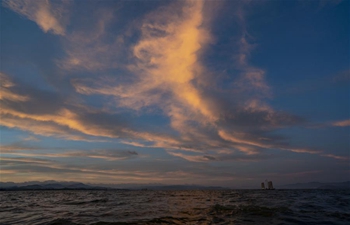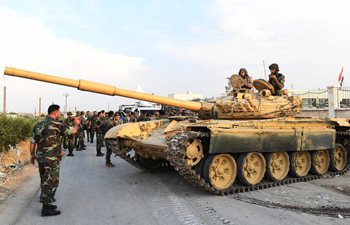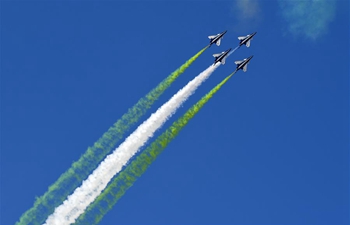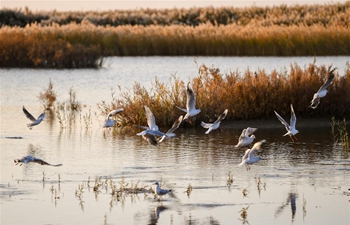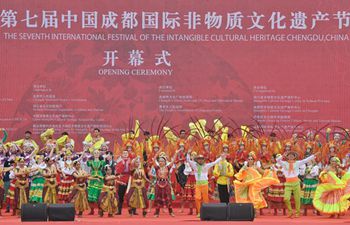MOSCOW, Oct. 23 (Xinhua) -- Russia and Turkey have adopted a joint memorandum on establishing a safe zone in northern Syria on the condition that Kurdish forces withdraw, a development that could ease escalating conflicts on the Turkish-Syrian border and facilitate a peace process in the war-torn country.
The agreement, which comes into force on Wednesday, was reached after a six-hour meeting between Russian President Vladimir Putin and his Turkish counterpart Recep Tayyip Erdogan on Tuesday in the Russian resort city of Sochi.
According to the document, the Kurdish forces have to withdraw within 150 hours to the depth of 30 km from the Turkish-Syrian border on the Syrian side, and then Russian and Turkish forces will start joint patrols in the area of Operation Peace Spring in northern Syria to a depth of 10 km, excluding Qamishli city.
Syrian President Bashar al-Assad expressed his full support for the memorandum and said that the Syrian border guards are ready to enter the Syrian-Turkish border together with the Russian military police.
Russian Foreign Minister Sergei Lavrov said the Turkish military offensive will soon come to an end if the agreement is well implemented.
On Oct. 9, Turkey launched a military offensive dubbed Operation Peace Spring in northern Syria bordering southern Turkey in an attempt to fight Kurdish forces, which are deemed by Ankara as separatists and terrorists.
Following the Turkish action, the Kurdish Autonomous Administration of North and East Syria said on Oct. 13 that it had reached an agreement with the Syrian government, backed by Russia, allowing the Syrian army to assume control of some Kurdish-held areas to counter Turkey's military progress.
The memorandum came right after the expiration of a five-day agreement reached by Turkey and the United States last week to push the Kurdish militia from the border area and lift sanctions imposed on Turkey in exchange for Ankara's halting its military operation.
The Russia-Turkey agreement was widely hailed as a "road map" for peace negotiations.
Konstantin Kosachev, chairman of the Russian Federation Council's Foreign Affairs Committee, called the document "the triumph of diplomacy and the failure of a policy of threats and sanctions."
The implementation of the agreement will help ensure Syria's territorial integrity while preventing the escalation of hostilities and the possibility of terrorists taking advantage of the acute situation on the border, thus proceeding with a peace settlement in the country, he said.
In particular, the participation of the Syrian government in the implementation of the agreement is considered a significant step forward.
Vladimir Fitin, head of the Middle East Center of the Russian Institute of Strategic Studies, noted that it is the first time the Syrian government has joined these agreements with Turkey.
"This means a great move forward and a step towards finally ensuring the start of the work of the Syrian Constitutional Committee. On the whole, the agreements will become a serious factor in the process of peaceful settlement in Syria," Fitin said.
Experts also highlighted Moscow's contribution to the finalization of the landmark agreement and its role as a key mediator in solving the regional issues.
"Russia is bringing a constructive tone to the process of resolving the Turkish-Kurdish conflict," Sergei Zheleznyak, a member of the Russian State Duma's Foreign Affairs Committee.
He lauded the memorandum as another "significant victory" for Russian foreign policy.
"Our country, represented by the head of state, once again offers a peaceful agenda, guarantees stability and demonstrates the ability to have a positive impact on the situation in the Middle East region," Zheleznyak said.
